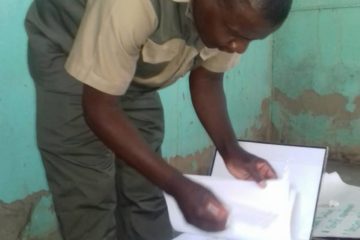At its meeting on 27 April 2024, the General Assembly of the Mubaya Ecovillage Zimbabwe Support Association resolved to dissolve the association at the end of May 2024.
Since 2015, the association has been providing financial, administrative and personnel support for sustainable, ecological and social projects in the Mubaya ecovillage. The vision of the pro-ject’s founder, Michael Mubaya, is to transform his home village into an eco-community (see Vision 2016 – 2020 https://mubayaecovillagezimbabwe.org/de/mubaya-oekodorf/vision/). This goal should have been achieved in 2020 with part of the population.
Unfortunately, the goals set for a larger village community have not yet been achieved, nor do they currently appear achievable. Even though certain projects have been quite successful, such as the construction of the dam or the water systems for the garden and agriculture and the greening of the demonstration farm, it has not been possible in all these years to transform this farm into a training centre and to gain the interest of the population for permaculture or the independent production of healthy organic food. Even the small group of around seven people who completed a short training course in permaculture specifically for this purpose were unable to put the basic principles of organic farming they had learnt into practice on a broad scale. The main problems identified by the board of the support association were a lack of management skills on the part of the respective project leaders, competitive thinking and jealousy, a lack of long-term planning opportunities due to unsecured funding, inadequate communication be-tween the Biel support association and those responsible on site, and a lack of self-reflection and problem-solving on both sides.
In 2017 and 2021, evaluations were initiated with the person responsible on site, Mike Mubaya. Although these repeatedly resulted in very interesting discussions, they very rarely led to con-crete longer-term project planning. Several attempts to introduce an organisational structure or to provide Mike Mubaya with further training in management issues failed to produce any results.
Even the intensively supported women’s chicken project (Female Livelihood Project) turned out not to be realisable as planned. The remaining women’s group does keep chickens on a small scale and is still trying to sell them and their eggs. However, they are currently not in a position to turn this project into a profitable business that could serve as a model for other women – particularly in the 50 or so households in the village.
The General Assembly no longer considers it appropriate to maintain the support association, as the goal of financial independence for the realisation of long-term and sustainable projects on site does not appear to be achievable in the manner agreed with those responsible on site.
Furthermore, the General Assembly decides not to call in the outstanding membership fees and to transfer half of any existing association assets to Michael Mubaya and half to the wom-en’s group in charge of the chicken project (Female Livelihood Project).
People who would like to continue supporting Michael Mubaya or the Female Livelihood can transfer donations via WorldRemit to Michael Mubaya or, for the women’s project, to its treas-urer Theresa Mubaya.
Donations can be made using the WorldRemit application, which can only be made via a mo-bile device. This requires the following information from the donation recipient.
Michael Mubaya (+263 78 472 70 47) respectively Theresa Mubaya (+263 77 437 93 04)
Then select the “Cash Pick-up” payment option.
The Committee May, 2024


